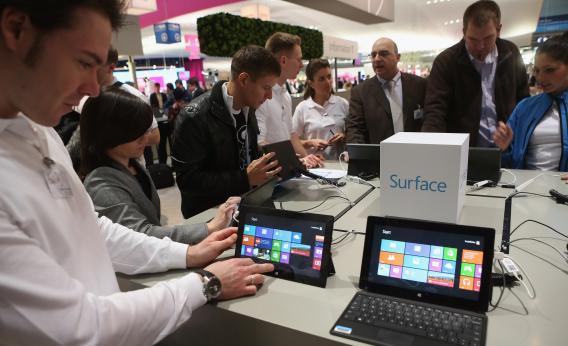Nick Bilton asks why the Surface RT failed where the iPad succeeded, and concludes that consumers preferred the simplicity of the iPad:
Today’s consumers don’t want options. They are impatient. They want to tear their new shiny gadget from the box and immediately start using it. They don’t have time to think about SD cards or USB drives or pens or flip stands.
The Surface RT didn’t allow that. Customers had to think about it.
There’s something to this, but it’s important to get the timing right. It’s not as if the iPad and the Surface RT came out in the same month and people bought the iPad in droves while eschewing Microsoft’s offering. The thing didn’t come out until late October 2012, by which time Apple was rolling out the fourth generation iPad and supplementing the brand with the iPad Mini. Apple’s tablets already had millions of customers, a strong brand, and a robust ecosystem of apps by the time Surface RT rolled around. To beat that, you’d have to come up with something much better. Adding an SD card slot into the mix doesn’t fit the bill. If you have some particular need to use SD cards with your tablets, there’s a dongle for that and of course it turns out most people don’t have any particular need for this feature. If Microsoft had put out a good tablet in 2009, maybe we’d all be talking about how Apple failed to capitalize on its iPhone lead by moving into the tablet space. But they didn’t. October 2012 isn’t too late for a would-be competitor to introduce a rival device, but it needs a really compelling selling point.
Microsoft should know all about this. Apple’s spent the past 10 years running a profitable business selling laptop and desktop computers, and lots of people (people like me!) like Macs very much. But in terms of overall market share, they’ve barely moved the needle against Windows. Not because there’s some critical flaw with Macs, but because in an industry with tons of inertia and network effects Apple would need to somehow come up with something dramatically better to dislodge the incumbent. And they just can’t. Windows PCs aren’t perfect, but they do the job of a PC about as well as the job can be done. And once you’ve got a huge lead, that’s enough to keep it.
